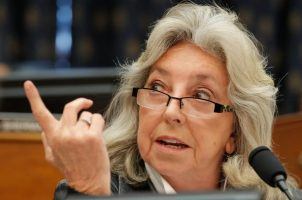Gaming Industry on Defensive After Study Raises Concerns About Sportsbook Content
Posted on: September 4, 2024, 08:17h.
Last updated on: September 4, 2024, 09:48h.
The United States gaming industry is on the defense after academics at England’s University of Bristol concluded that licensed sportsbooks regularly fail to adhere to responsible gaming protocols.

Sports betting in the US expanded rapidly after May 2018 when the Supreme Court repealed a federal law that limited single-game wagering to Nevada. Today, 38 states and Washington, DC, have legal sports betting.
The American Gaming Industry (AGA), the trade group representing the interests of the commercial and tribal gaming industries, formulated a Responsible Gaming Code of Conduct that its members are to obey. The code includes advertising responsibly, with all “sports betting advertising and marketing” to include a responsible gaming message and/or toll-free helpline number.
Bristol researchers found that much of the content shared by leading sportsbooks like DraftKings and FanDuel failed to include responsible gaming messaging and help resources.
AGA Defense
The University of Bristol analyzed 1,353 social media posts by DraftKings, FanDuel, BetMGM, and ESPN Bet from July 29 through August 4. The content on X, Instagram, Facebook, and TikTok was seen over 29 million times.
Researchers found that over 1,000 posts failed to include a responsible gaming message or problem gambling resource. That led to their conclusion that the US sports betting industry isn’t complying with the AGA’s Responsible Gaming Code of Conduct that they pledged to uphold.
The AGA responded to the study by pointing out that the social media content that didn’t include a responsible gaming message or helpline were nonsponsored posts, meaning such information wasn’t required under the code of conduct’s terms.
Like companies across other industries, sports betting operators provide relevant, engaging content to customers designed to maintain brand awareness without promoting a specific offering that is covered by the code, like sports betting,” Joe Maloney, the AGA’s senior vice president, told The Guardian. “To describe the sharing of sports facts, schedules, or discussion topics via tweets and posts on social media platforms as advertising and thus applicable to our code is an irresponsible misinterpretation.”
The Bristol review cited many posts questioning where the line between advertisement and general content is drawn.
One example came from FanDuel about a tennis match and how a bettor won $19K on the contest’s upset result. The content didn’t directly link to the FanDuel Sportsbook, but also didn’t provide problem gambling support messaging.
University Scolds Industry
While all 310 paid posts complied with the AGA code, something Maloney said shows its members’ “commitment to upholding strong industry standards,” Bristol’s academics said the reviewed sports betting content was overwhelmingly pro-betting and seemed to encourage the public to participate.
It feels like they are doing anything just to get people signing on,” said Raffaello Rossi, marketing lecturer at the University of Bristol. “This relentless exposure can make gambling seem like a normal activity, increasing participation and risk among young and vulnerable groups.”
Rossi said the four sportsbooks examined averaged 237 social media posts per day. He opined that social media content from sportsbooks “are clearly seen as advertising now.”
Rossi reasoned that Congress should act to mandate that all gambling content include responsible gaming messaging and/or problem gambling help.
Related News Articles
Gaming Industry Opposes Legislation to Allocate Sports Betting Excise Tax
Gaming Professor Says Responsible Gaming Programs Lacking in Effectiveness
Online Sports Betting Study Raises Problem Gambling, Financial Concerns
Most Popular
FTC: Casino Resort Fees Must Be Included in Upfront Hotel Rates
Genovese Capo Sentenced for Illegal Gambling on Long Island
NBA Referees Expose Sports Betting Abuse Following Steve Kerr Meltdown
UPDATE: Former Resorts World & MGM Grand Prez Loses Gaming License
Most Commented
-
UPDATE: Whiskey Pete’s Casino Near Las Vegas Closes
— December 20, 2024 — 30 Comments -
Caesars Virginia in Danville Now Accepting Hotel Room Reservations
— November 27, 2024 — 9 Comments -
UPDATE: Former Resorts World & MGM Grand Prez Loses Gaming License
— December 19, 2024 — 8 Comments -
FTC: Casino Resort Fees Must Be Included in Upfront Hotel Rates
— December 17, 2024 — 7 Comments
















No comments yet